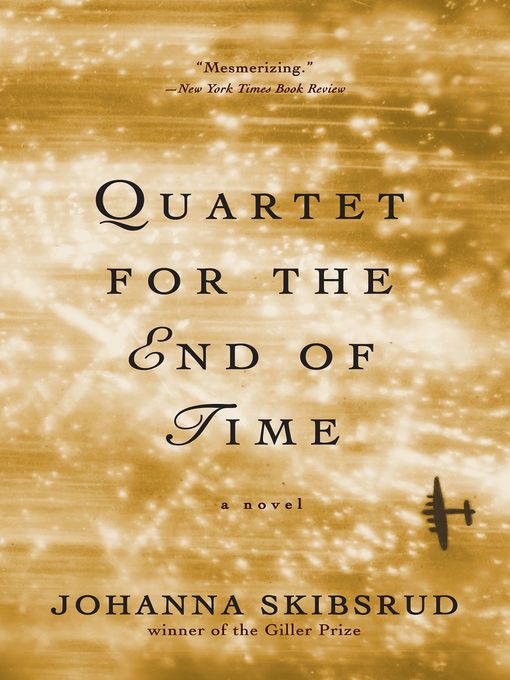
Quartet for the End of Time
A Novel
- اطلاعات
- نقد و بررسی
- دیدگاه کاربران
نقد و بررسی

August 11, 2014
This intricate, ambitious novel by the author of The Sentimentalists (winner of the Giller Prize) takes its theme—the illusions of time—from Olivier Messiaen’s musical composition of the same name. In 1932, an ad-hoc army of veterans occupies Washington, D.C., demanding the immediate payment of their demobilization bonuses. Rebellious Alden Kelly is drawn to the makeshift camps, where he falls prey to Communist operatives. When Alden is arrested carrying an explosive, his politically powerful father pressures the boy’s young sister, Sutton, to falsely identify veteran Arthur Sinclair as the guilty party. Alden is released, but Arthur—whose fate is never clear—continues to haunt Alden, Sutton, and Arthur’s son, Douglas, who crisscrosses the Depression-ravaged country in search of his father. Alden never frees himself from the incident’s burden; as WWII ends, past and present, truth and illusion, merge in his mind. Like McEwan’s Atonement, the novel examines an act of personal betrayal against a sweeping backdrop of historical conflict. The philosophical musings and narrative detours Skibsrud uses to manipulate time sometimes make the pacing sluggish. But at its best, the novel is a haunting meditation on responsibility with vivid glimpses of history, and a distinctive and nuanced voice.

October 15, 2014
Skibsrud's elegant, intricately woven second novel (The Sentimentalists, 2011) is inspired by Messiaen's experimental composition Quartet for the End of Time, a musical piece that sought to escape the restrictions of conventional measurements of time.Attempting to mimic Messiaen's structure, Skibsrud jumps into different perspectives and time periods to trace the repercussions of a single event. The book begins in 1932 with a group of down-on-their-luck World War I veterans camped out in Washington, D.C., to demand the immediate cash fulfillment of their bonus certificates, which weren't due to mature until 1945. A young, idealistic judge's son, Alden Kelly, finds himself sympathetic to the cause of the Bonus Army though his father vehemently disagrees with him. He falls under the sway of a Communist leader who asks him to carry an explosive device for a shadowy purpose, but before the bomb can reach its intended destination, Alden gets caught in the swell of a riot and has his bag confiscated by the police. In the ensuing investigation, the judge arranges for Alden's sister, Sutton, to point the finger at Kansas veteran Arthur Sinclair, who disappears after being taken into custody. The repercussions of this action ripple through the rest of the book as Skibsrud traces the lives of Sutton, Alden, and Arthur's son, Douglas, through the Great Depression, World War II and beyond, long after the bonus tickets are paid out thanks to Congressional approval. Though Skibsrud's pacing sometimes bogs down, her unique voice and eye for historical detail lend the book a satisfying richness.
COPYRIGHT(2014) Kirkus Reviews, ALL RIGHTS RESERVED.

May 15, 2014
Music lovers will immediately recognize Scotiabank Giller Prize winner Skibsrud's title as that of a work French composer Olivier Messiaen wrote and first performed in a German prison camp. The novel ends up at the camp by way of four lives connected by a World War I betrayal. Ambitious.
Copyright 2014 Library Journal, LLC Used with permission.




دیدگاه کاربران